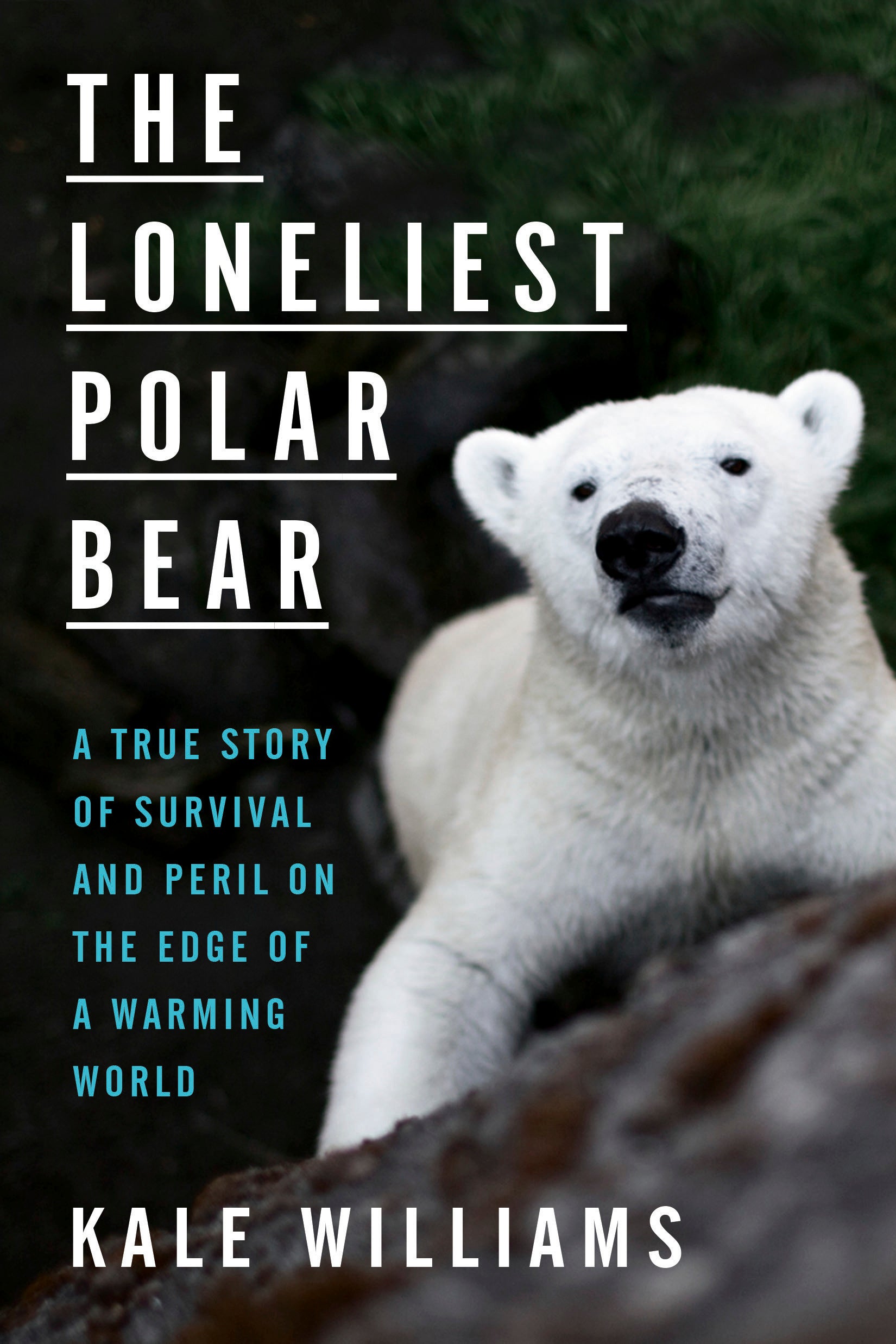Review: A bear's life tells the history of global warming
“As an ambassador, the polar bear is imperfect,” writes author Kale Williams in his new book, “The Loneliest Polar Bear: A True Story of Survival and Peril on the Edge of a Warming World.”

Your support helps us to tell the story
From reproductive rights to climate change to Big Tech, The Independent is on the ground when the story is developing. Whether it's investigating the financials of Elon Musk's pro-Trump PAC or producing our latest documentary, 'The A Word', which shines a light on the American women fighting for reproductive rights, we know how important it is to parse out the facts from the messaging.
At such a critical moment in US history, we need reporters on the ground. Your donation allows us to keep sending journalists to speak to both sides of the story.
The Independent is trusted by Americans across the entire political spectrum. And unlike many other quality news outlets, we choose not to lock Americans out of our reporting and analysis with paywalls. We believe quality journalism should be available to everyone, paid for by those who can afford it.
Your support makes all the difference.“The Loneliest Polar Bear: A True Story of Survival and Peril on the Edge of a Warming World,” by Kale Williams (Crown)
Nobody ever asked them if they wanted the job, but polar bears are the global symbols of climate change. That’s the jumping off point for Kale Williams’ excellent new book, which begins with a cuddly cub named Nora.
Abandoned by her mother soon after birth at the Columbus Zoo in Ohio Nora’s story frames the rest of the book, which is part scientific history, part adventure tale. We follow her from zoo to zoo, getting to know the keepers who care for her as she learns how to be a bear without the benefit of a mother or her natural habitat.
The chapters starring Nora are the most engaging, but Williams works in lots of other stories and history to educate readers about the impact of climate change. We meet the Native American hunter who killed Nora’s grandmother 28 years prior to her birth, after falling into an ice cave she had created to nurse her cubs. We are taken back to the 1988 Senate hearing when NASA Dr. James Hansen laid bare the scientific evidence regarding the greenhouse effect and its impact on Earth’s temperature. And we’re treated to a depressing primer on how the global energy industry mobilized to create the arguments that climate change deniers still use to this day.
“As an ambassador, the polar bear is imperfect,” writes Williams. They’re performance artists in zoos around the world, delighting visitors with their charisma and playful nature. But they come from a part of the world that few people will ever see and precise data on the 19 populations of bears worldwide is increasingly hard to gather given the loss of sea ice.
And so Williams doesn’t endeavor to solve the climate crisis in this 200-plus page book. He just lays out the facts, tells a few stories, and readers come away informed and entertained.
Williams is a science and environment reporter at The Oregonian and knows that climate change is the most monumental task ever faced by humanity. It will take global public policy and cooperation on a scale that we haven’t managed to achieve on any issue ever before. But Williams’ final line about Nora’s keepers should resonate with all of us as we consider the challenge ahead: “Their promise to her was not that they would always get it right, but that they would try.”